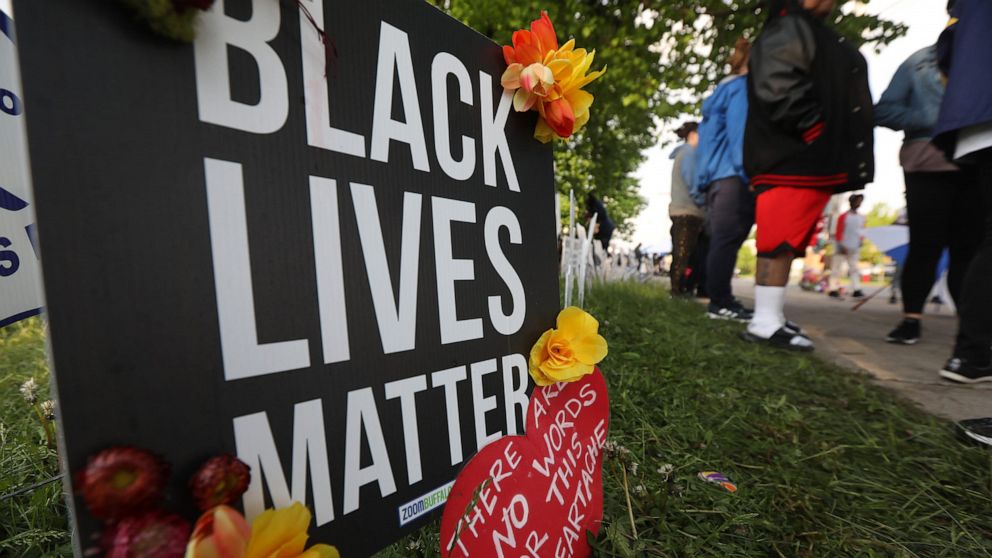Some politicians and activists have recently accused the teaching of race and inclusion in schools of dividing or indoctrinating students.
However, the growing threat of white supremacist extremism in the United States has left education advocates increasingly worried about these Republican-led efforts.
Now, a mass shooting allegedly by a self-proclaimed white supremacist targeting a predominantly black neighborhood in Buffalo, New York, has sparked fears over a ban on racial education in schools, say advocates who spoke with ABC News.
To research shows that children become aware of race and racial inequality at a young age and may develop racial bias between ages 3 and 5.
Studies, including those of Phyllis A. Katz, award-winning social developmental psychologisthave long shown that children engaged in honest and frequent conversations about race, racial inequality and racism, lead to lower levels of prejudice in young children.
Children are inspired by what they see around them, so avoiding conversations about race and inequality only allows “widespread stereotypes [to] remain unchanged,” Katz’s research states.
Katheleen Belew, a historian specializing in the white power movement, testified before the Congress in 2019 recommend education as a solution to recognize extremism as a nation.
“Truly addressing white power violence would involve a long look at the fundamental racial inequality of many American communities,” Belew said.
Experts on radicalism in the United States, such as Michael Edison Hayden, senior investigative journalist at the Southern Poverty Law Center, suggest that education can be a vital tool against racism in different ways.
“Everyone needs to be aware of these tremendous racial injustices that have existed throughout American history,” Hayden said. “You can’t understand how the people of Buffalo are feeling right now — black people in general — without understanding the history of racist violence in this country.”
However, Hayden warns that only portraying white people as antagonists could “maintain this cycle [of division] go into our culture.”
It primarily recommends that federal agencies fund programs that support early intervention of radicalization and inoculate communities against extremism, promoting media literacy, mental health resources, and other similar programs.
“You have people who oppose education right now when it’s needed more than ever,” he said.
In more than 30 states across the country, bills targeting “critical race theory” in K-12 grades have been introduced or passed.
Critical race theory is a discipline that seeks to understand how racism has shaped American laws.
Teachers say theory is taught in law and higher education classes and not taught in K-12 grades.
Yet critics say the theory is used in public schools to discriminate against white students and blame them for actions of white people in the past.
There was also a concurrent Republican-led effort to ban young adult or children’s books that discuss race, ethnicity, gender, and sexual orientation.
The anti-racial education movement has sparked school board meetings, primary midterm races and conservative media most intensely in the past two years. This has led to heated debates over whether children are learning the long history of racial oppression and the struggle for equality in schools.
However, critical race theorists, educators and some parents say opponents are actively distorting the theory in order to reverse the progress made in diversity and racial equity.
“Whitewashing history, banning books, silencing diverse voices do anything to deprive students of the truth about our history, and do anything to plant the seeds of white supremacy,” said Kim Anderson, executive director of the National Education Association. , told ABC News.
They say basic lessons about civil rights movements, LGBTQ rights, gender equality and more can no longer be explored and discussed in classrooms because of these laws.
“The vocal minority has been radicalized by people who seek to divide us for political purposes,” Anderson said. “These are politically motivated attempts to divide Americans and distract us from what is really going on in this country, which is too many of us struggling to make ends meet.”
Without these lessons, some educators argue, attacks on historically marginalized groups could continue to escalate.
A document allegedly left by the alleged 18-year-old Buffalo shooter, which authorities say detailed his racist plans, highlights the growing threat of white supremacist extremism in the United States.
In it, he allegedly expressed racist and anti-Semitic motives and espoused white supremacist conspiracy theories about America’s changing demographics. In the document analyzed by ABC News, he claims that his beliefs have been cultivated through information on the Internet in recent years.
Elana Yaron Fishbein, founder and president of anti-racism education group No Left Turn in Education, told ABC News she doesn’t believe anti-racism efforts are a solution to the white supremacist extremism seen in Buffalo. .
“The divisive ideology of ‘anti-racism’ only creates more racial division and blame, not less,” Fishbein said. “It actually calls for fighting racism with more racism. How does this heal our society and bring us together?”
“No one who understands the history of this country and the values that make it great would ever commit a horrific act of violence like the Buffalo tragedy,” Fishbein said.
However, Ronda Taylor Bullock, the senior curator at anti-racism advocacy organization We Are, argues that educators need to educate students about racial inclusion and equality so they are informed before they encounter radical and racist ideals.
“Someone feels guilty [about racial inequality] is not the equivalent of black people being murdered by a white supremacist,” Bullock told ABC News.
“I wonder how many more examples like this, do we need to affirm that anti-racism work must be part of our education system? … We must recognize that racism divides and anti-racism does not isn’t,” Bullock said. added.

